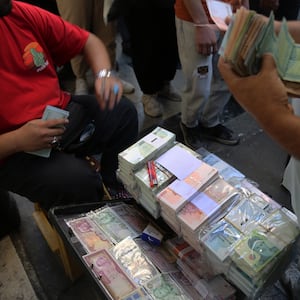Business
UN Resumes Sanctions on Iran Following Failed Nuclear Negotiations

Widespread sanctions imposed by the United Nations on Iran have come back into effect for the first time in a decade, following unsuccessful nuclear negotiations with Western powers. The renewed sanctions target Iran’s nuclear and ballistic missile programs, reflecting international concerns over Tehran’s capabilities and intentions. The move arrives just three months after military actions by Israel and the United States, which included airstrikes against Iranian targets.
The sanctions encompass a broad range of restrictions that are likely to have significant repercussions on Iran’s already struggling economy. These measures include bans on transactions pertaining to nuclear materials and technology, which the international community sees as essential to curbing Iran’s potential development of weapons of mass destruction.
Despite the inaction in the negotiations, European and American diplomats have been quick to assert that diplomatic efforts are not concluded. Following the sanctions’ reinstatement, Marco Rubio, the United States Secretary of State, emphasized the need for Iran to engage in direct dialogue. “We urge Tehran to accept direct talks, held in good faith,” he stated.
Rubio also called on all UN member states to implement the sanctions without delay. He argued that immediate action is necessary to compel Iran’s leadership to prioritize the welfare of its citizens and the broader safety of the international community. The urgency of this call reflects rising tensions in the region and the need for a coordinated global response.
International Reactions and Implications
The reinstatement of sanctions has triggered a variety of responses from nations involved in the negotiations. While some countries express support for the UN’s decision, others, particularly within the region, voice concerns about the potential humanitarian impact of renewed economic restrictions. Critics argue that sanctions disproportionately affect the Iranian populace rather than the political elite, exacerbating existing humanitarian challenges.
Furthermore, the sanctions could hinder Iran’s economic recovery from previous restrictions and the impact of the COVID-19 pandemic. Analysts predict that the renewed measures will not only complicate Iran’s economic landscape but also affect its regional influence and relationships with neighboring countries.
As the situation develops, the international community watches closely for any signs of renewed diplomatic engagement or further military actions. The long-term effects of these sanctions on both Iran and global stability remain to be seen, as the balance between diplomacy and enforcement continues to shift.
In summary, the return of UN sanctions on Iran underscores the complexities of international relations and the challenges of achieving a peaceful resolution to ongoing nuclear concerns.
-

 World4 months ago
World4 months agoTest Your Knowledge: Take the Herald’s Afternoon Quiz Today
-

 Sports4 months ago
Sports4 months agoPM Faces Backlash from Fans During Netball Trophy Ceremony
-

 Lifestyle4 months ago
Lifestyle4 months agoDunedin Designers Win Top Award at Hokonui Fashion Event
-

 Entertainment5 months ago
Entertainment5 months agoExperience the Excitement of ‘Chief of War’ in Oʻahu
-

 Sports4 months ago
Sports4 months agoLiam Lawson Launches New Era for Racing Bulls with Strong Start
-

 World5 months ago
World5 months agoCoalition Forms to Preserve Māori Wards in Hawke’s Bay
-

 Health4 months ago
Health4 months agoWalking Faster Offers Major Health Benefits for Older Adults
-

 Lifestyle4 months ago
Lifestyle4 months agoDisney Fan Reveals Dress Code Tips for Park Visitors
-

 Politics4 months ago
Politics4 months agoScots Rally with Humor and Music to Protest Trump’s Visit
-

 Top Stories5 months ago
Top Stories5 months agoUK and India Finalize Trade Deal to Boost Economic Ties
-

 Health2 months ago
Health2 months agoRadio Host Jay-Jay Feeney’s Partner Secures Visa to Stay in NZ
-

 World5 months ago
World5 months agoHuntly Begins Water Pipe Flushing to Resolve Brown Water Issue









